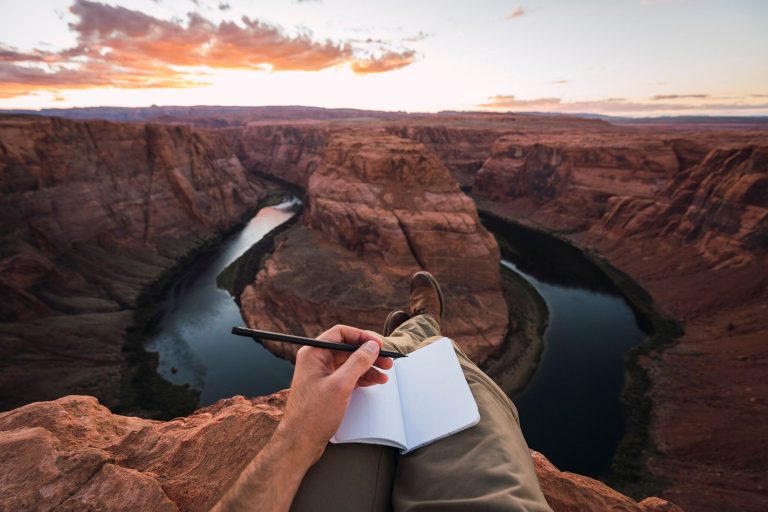
7. Think about the aim and structure of your story
With a commission secured and the trip complete, attention turns to writing a great piece that hits the brief. Kerry Walker described how she begins to build the structure of her features, explaining, “I collate all the material in one place, type up all my interviews, then look at the structure of it — like building blocks. I like to play with it until it starts to shape itself.”
Travel writer and editor Alicia Miller suggested that reminding yourself of the original brief can be helpful to ensure your piece stays on topic: “Always refer back to the brief you’ve agreed with the editor — it re-routes you to what you’ve been asked to do for the feature.”
8. Make sure you grab your reader’s attention
Once you’re ready to put pen to paper, our panellists all agreed on the importance of a strong opening to capture the reader’s interest and imagination.
When it comes to grabbing the reader’s attention straight away, award-winning travel journalist Zoey Goto said, “I love a drop intro where you place the reader into the heart of the story. Think about the most colourful or evocative moment of the trip — it’s a nice way to get in on the action.”
Having piqued your reader’s curiosity with a killer introduction, Richard Hammond reminded us of the need to keep them entertained throughout the piece. “Stories are at the heart of tourism and travel,” he explained. “Editors want to entertain the readers, and people read newspapers and magazines because they want to dream about their next holiday.”
9. Find the right balance between vivid imagery and practical copy
When trying to strike the right tone while writing your feature, Alicia Miller suggested thinking about the “balance between those colourful moments that are really vivid and drop the reader into the place, and those practical paragraphs that provide context and analysis to your experience.”
Chris Leadbeater agreed, saying, “You want a decent amount of descriptive language, but you don’t want to overwhelm the copy with it. I think readers have a fine ear for overindulgence. Just because you can write 500 words that are all adjectives doesn’t mean you should. There’s a balance there.”
10. Create an unforgettable ending
Finally, the need for a strong ending was emphasised by panellists throughout the sessions, with moderator Jonathan Thompson, an award-winning freelance journalist, saying, “In all the best travel writing I’ve ever read, you remember the ending because that’s what you’re left with.”
To help you craft an exceptional conclusion, Zoey Goto suggested, “It’s really nice if you can loop back to the introduction in some way. It may be physically coming back to the original setting with new insight, or perhaps rounding off a question that was raised early in the article.”
The Masterclasses by National Geographic Traveller (UK) will return in 2023.
Subscribe to National Geographic Traveller (UK)
Follow us on social media
Twitter | Facebook | Instagram